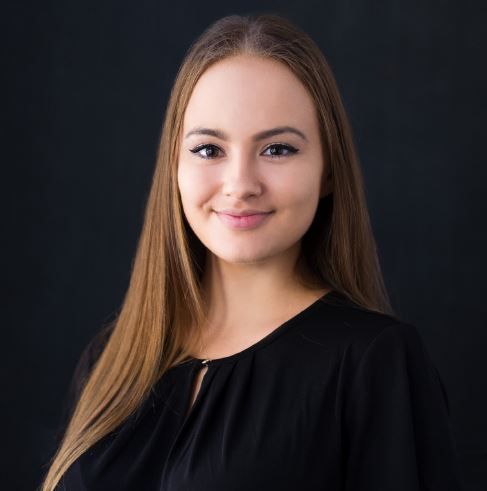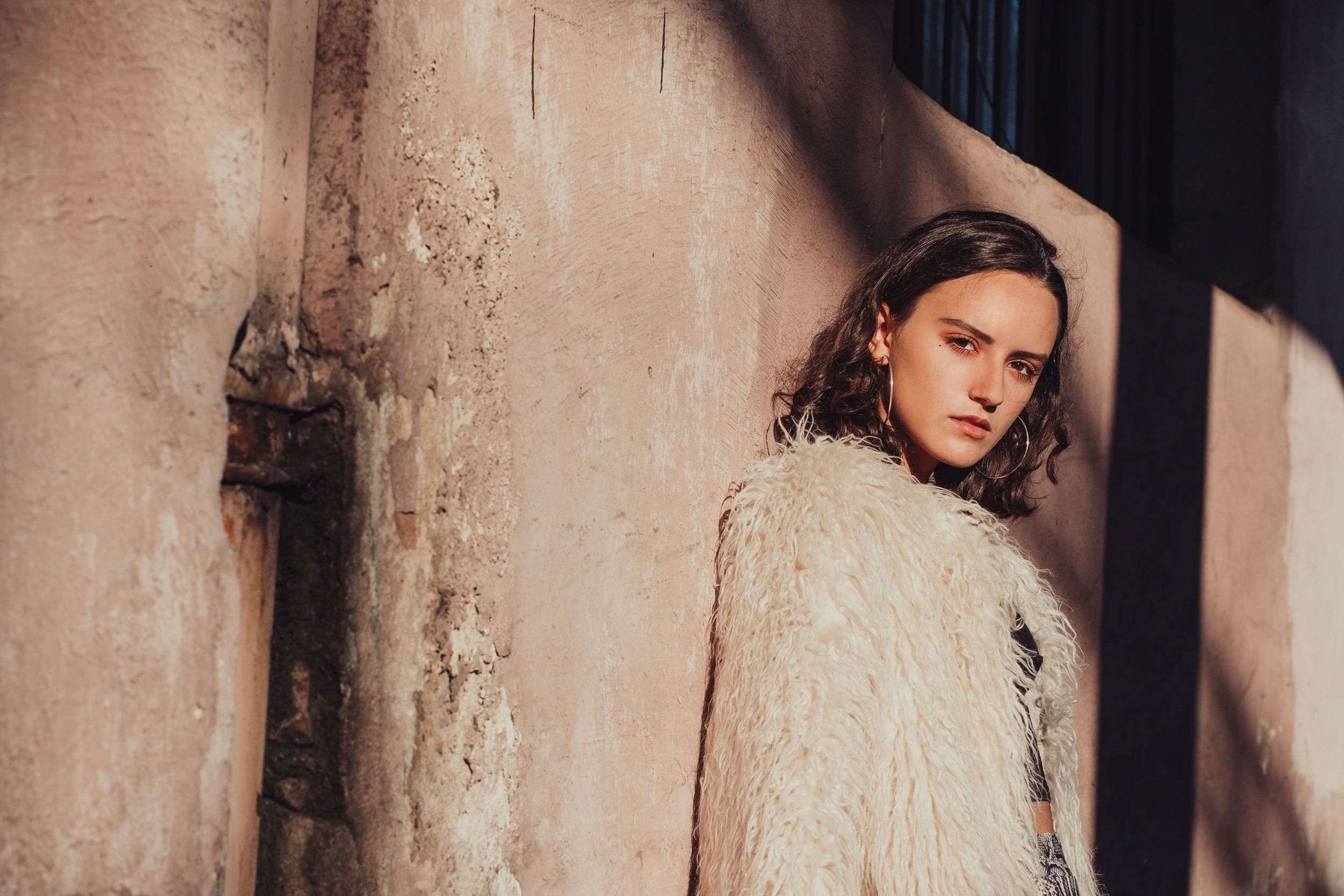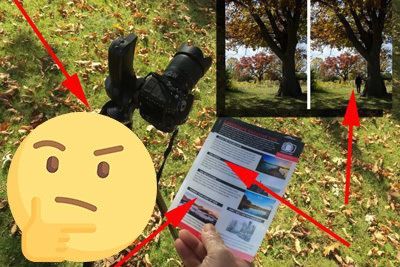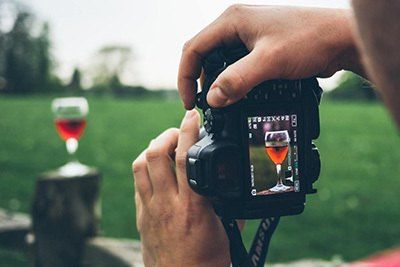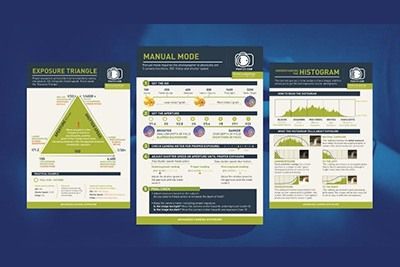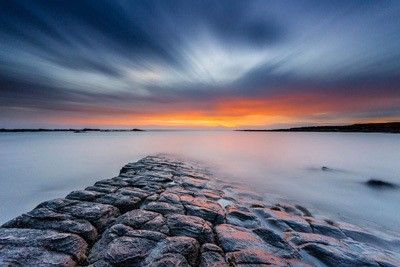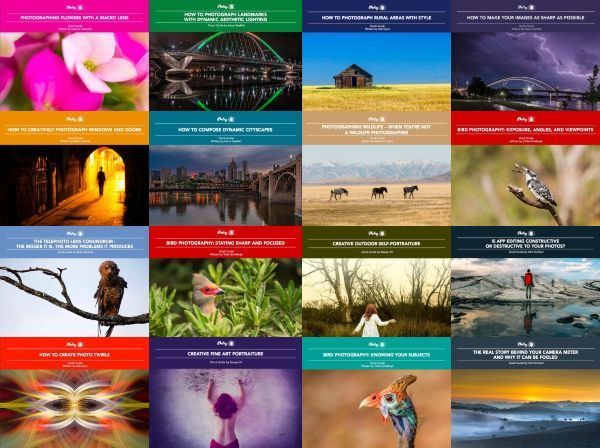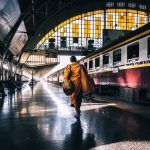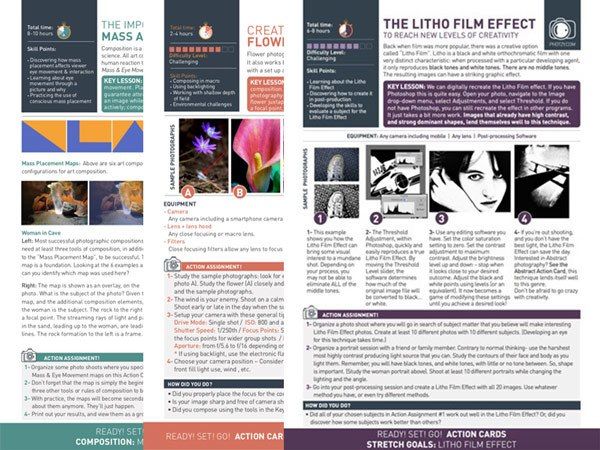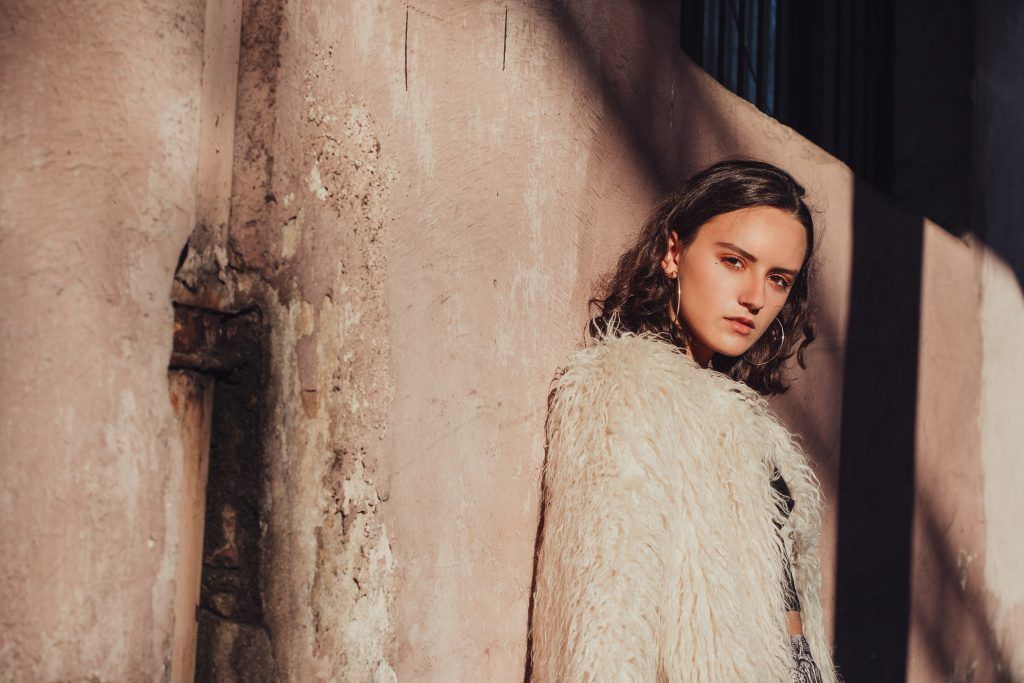One of the common things we often hear professional photographers say is, “If you are a professional, you avoid shooting at noon.” It is partially true, because experienced photographers usually customize their schedule in order to increase their chances of getting a type of light they prefer. That is, usually a soft, beautiful light achieved by the golden hour near sunrise or sunset hours. I can’tblame them – I’m one of them, preferring to work in my comfortable space of soft light, no harsh shadows, and beautiful “bokeh.” But what really does bring you a step closer to becoming a professional? Being able to shoot amazing pictures regardless of lighting conditions? Adapting to new and uncomfortable situations? The answer is yes, but first of all, you have to seek them.
Today, we’ll cover the following:
- Reasons why photographers avoid shooting in directional lighting
- Tips before, during, and after a photoshoot for achieving better outcomes in directional lighting
Recommended Reading: If you’re interested in learning more about light and how you can use it to improve your photography, grab a copy of Photzy’s
bestselling premium guide: Understanding Light Book Two.
Why Do Photographers Prefer Golden Hour Light and Avoid Shooting at Noon?
There are various reasons why this has been the trend over the past years, and it is still a preferred time of day for the majority. Firstly, think about the position of the sun regarding the subject in both situations. During the golden hour, the sun is near the horizon and isn’t as strong as usual. You have two main options: pose your subject with the golden hour sun shining to their face, or (the more popular one) behind them, creating beautiful lens flares. Yes, photographers do it for these effects, but it is not the only thing. The truth is that it is an ideal situation to manage unwanted shadows.
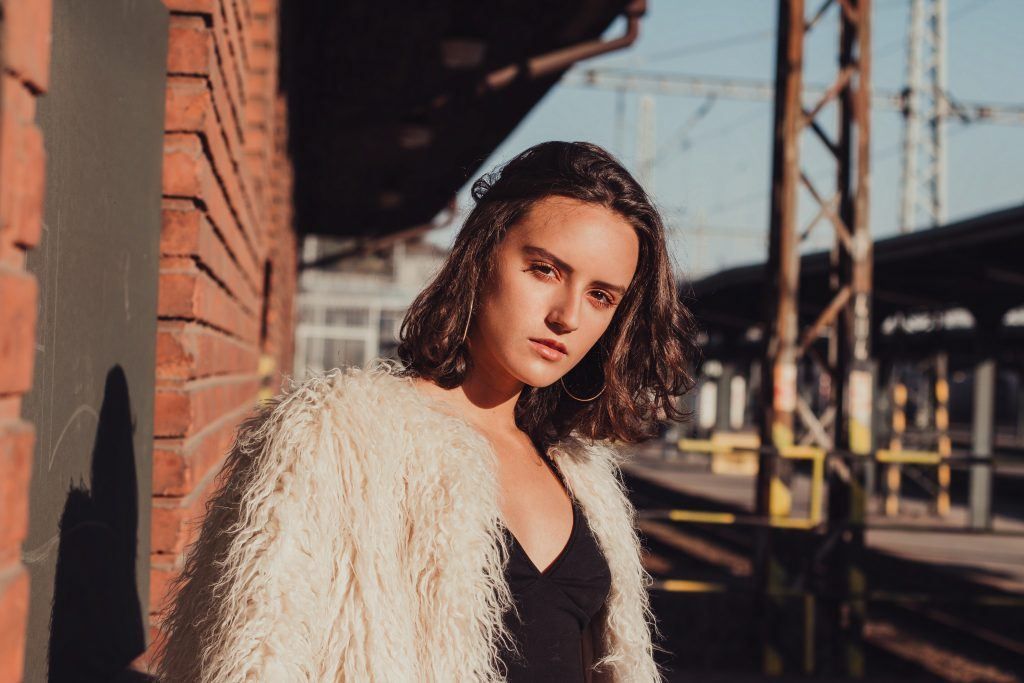
Photograph by Ludmila Borosova
Let me explain. If the sun is near the horizon, it shines right on the face of the subject. It’s like a huge soft box, making sure that all your shadows are even. On the other hand, if you shoot at noon, the sun is right above your subject, making it very hard to balance your light properly. It can easily happen that half of your model will be overexposed and the other half very dark from the shadows. Any part of the subject’s face can cause these shadows; that’s what you can observe on the image above. The subject’s chin, nose, and eyelashes created small shadows, which I feel worked very well with the picture, but it doesn’t always go this way.
To understand this correctly, try looking at yourself in the dark using a flashlight, first placing it right in front of you and then above you. What kind of shadows does it create?
What Tips Can You Use to Achieve Better Outcomes in Directional Lighting
I know that planning your first harsh-light shoot is… well, harsh. So, here are some tips to follow before, during, and after the photoshoot to maximize your outcomes!
Before the Photoshoot
Seek the Uncomfortable!
You don’t have to go all in on the first day – it’s a hard task, so go slow! Make yourself a cup of coffee and do some research. There are tons of behind-the scenes videos available and examples of pictures, styles, and posing that you can be inspired from. What kind of photoshoot are you keen to do? In what way could harsh light complement your style? Which one of the photoshoots you found do you like the most? Why? When you’re ready to answer at least these few questions, you have a good base of what you want to go for. Now, it’s time to challenge yourself and plan a real one.
Plan Properly!
Good news – the success of the photoshoot doesn’t lay only in the hands of a photographer. A great team of people working together is always crucial. Because it is your first time shooting in these unusual conditions, be careful choosing the right people to be there for you. I would start with someone who is close to you (it is less stressful than having a professional model on spot) but at the same time who has at least a bit of experience with posing. The way the model interacts with the camera is a huge chunk of the success!
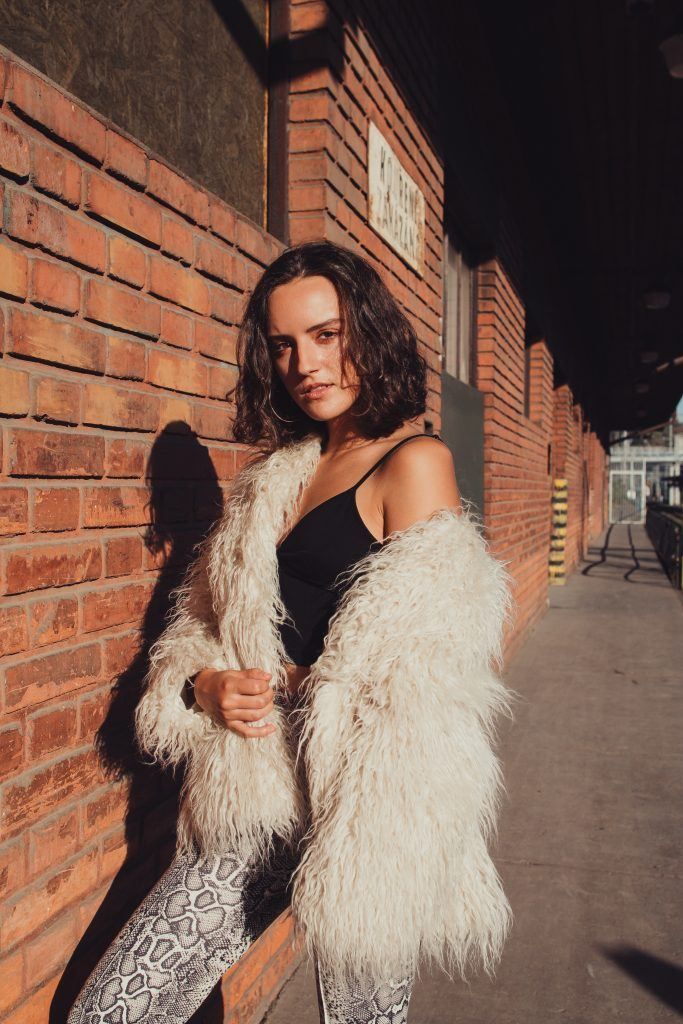
Photograph by Ludmila Borosova
Choose an interesting outfit to work with. Because it is a bit of a crazy shoot, you don’t need to stay in the regular daily wardrobe. Since you’ll be playing with the sun, don’t be afraid to play with the clothes or makeup as well. In the image above, you can observe that we went for a less traditional outfit, and it created a very nice effect. When the clothes are ready, your last task is to choose the right place!
"The success of the photoshoot doesn’t lay only in the hands of a photographer. A great team of people working together is always crucial."
It’s important that the place for your first directional lighting photoshoot isn’t only outdoors. Why? Well, if it goes wrong, you can still hide and shoot inside – or use it as a backdrop! You can see that for my photoshoot, I used a historical train station with lots of exposed spots and shadows as well. Another reason why it’s a good choice is that it has more of an industrial vibe, which I preferred to the harsh conditions.
Recommended Reading: If you’re interested in learning more about light and how you can use it to improve your photography, grab a copy of Photzy’s bestselling premium guide: Understanding Light Book Two.
During the Photoshoot
Shoot Manual and Pose Well!
This is the perfect situation to use Manual mode, because let’s be honest, sometimes you can never be sure what your camera thinks the situation is like. Combine your knowledge about Manual mode and posing people, finding the sweet spot. For example, it’s going to be hard to get a clear shot if your model is looking directly into the camera. However, you can use the sun’s angle to your advantage and decide whether you want to be facing the sun with the back or front. Soon, you’ll find out what kind of poses look good with the sun’s angle – and that’s the first win!
Bring a Reflector!
You don’t need a flash to be your best friend and problem solver; all you need is a reflector! Small and handy reflectors are very affordable and make a lot of difference. By directing the strong light to the model’s face, it is easier to navigate light to the right places. You don’t need any technical knowledge to use it, so it’s ideal for all the tech awkward people (like me, no shame!). The only disadvantage is that, unless you are very skilled with both hands at the same time, you need an assistant. Whether it’s a good friend or another beginner photographer, they can learn a lot from joining you – so don’t be afraid to ask for help!
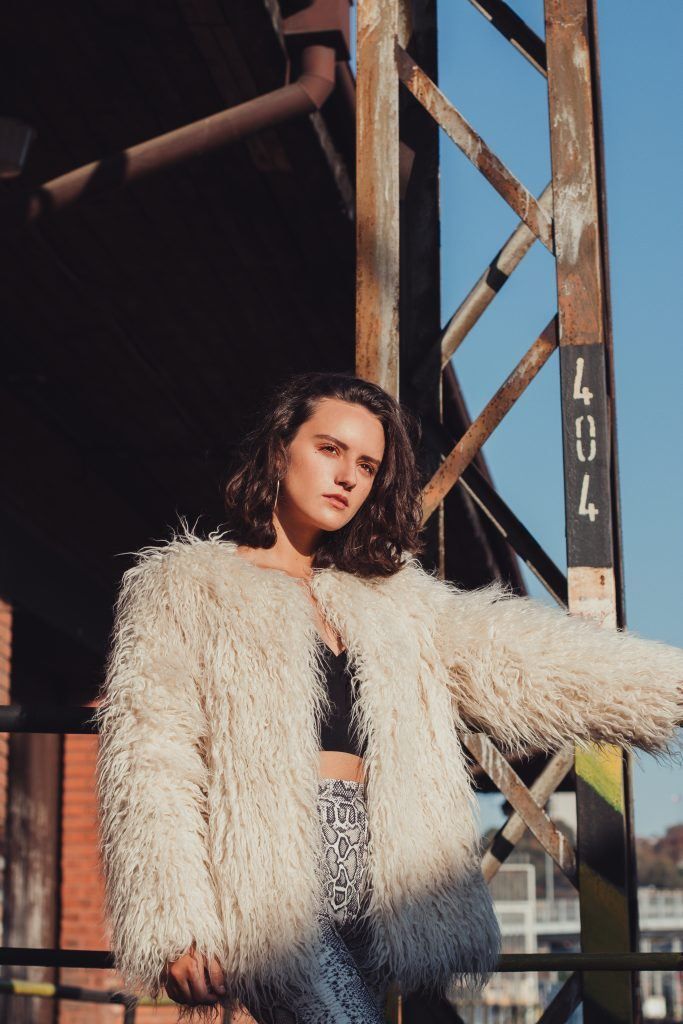
The reflector in this picture created a very soft skin on her face, easy to retouch and to pop out.
Make Your Model Face the Sun!
While shooting, try out different positions and learn quickly how the sun affects your photos and the shadows in them. When you are unsure as to how to continue, or if you don’t own a reflector, just make the model face the sun. It’s effective, artistic, and really makes a difference. Make sure you don’t overexpose the face, so rather keep your photos a bit underexposed and do the editing magic later.
Does the Eyes Hurt? Keep Them Closed!
Closed eyes for photos – yay or nay? I’m one of those photographers who really enjoys the dreamy look this simple facial expression brings. It’s a winwin for the photographer and the model. Imagine, usual photoshoots can take more than an hour, and your model is going to be super grateful if you switch to this pose once every few minutes.
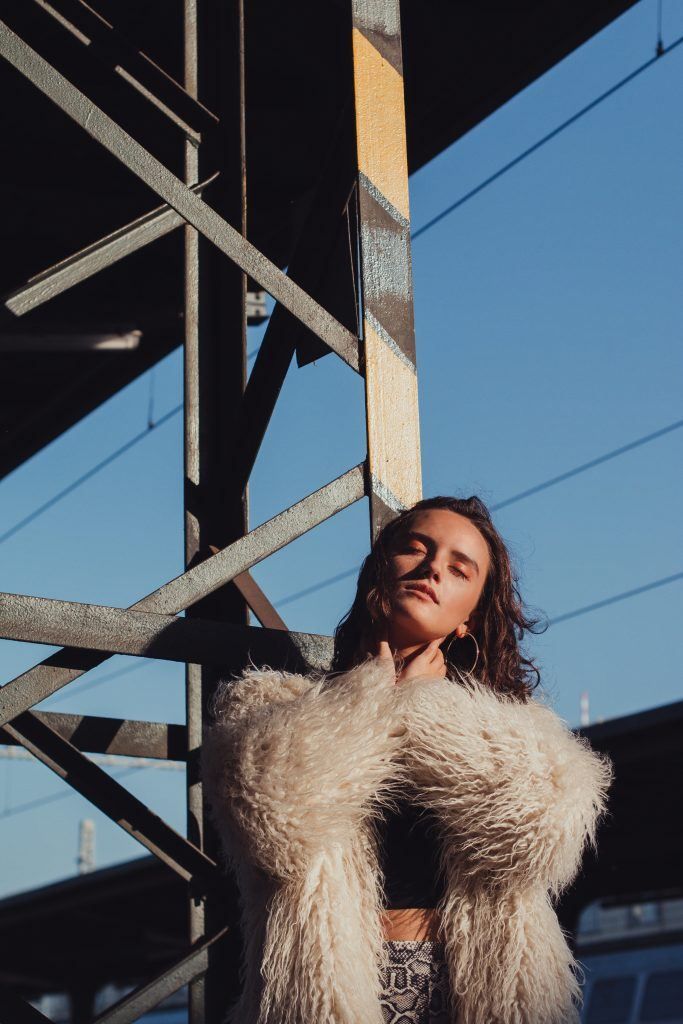
Photograph by Ludmila Borosova
Eyes are very sensitive, and not only will you get a great look, but you will also help your model to relax and gain energy for new, more complicated ideas. For an even more creative outcome, think about showing off makeup with the eyelids closed. You can use glitters, small stones, or even draw interesting patterns for these parts.
Bring Creative Props with You!
Make a list of things that can be used as a prop on a photoshoot. Even though I use a prism for almost every photoshoot, it’s not the only thing creating wonderful light effects. You can experiment with a lace tablecloth or even a spaghetti strainer. By placing these objects in between the sun and your model, you can create very interesting shadows – taking your photos to the next artistic level in just a few seconds!
Create Shadow Patterns!
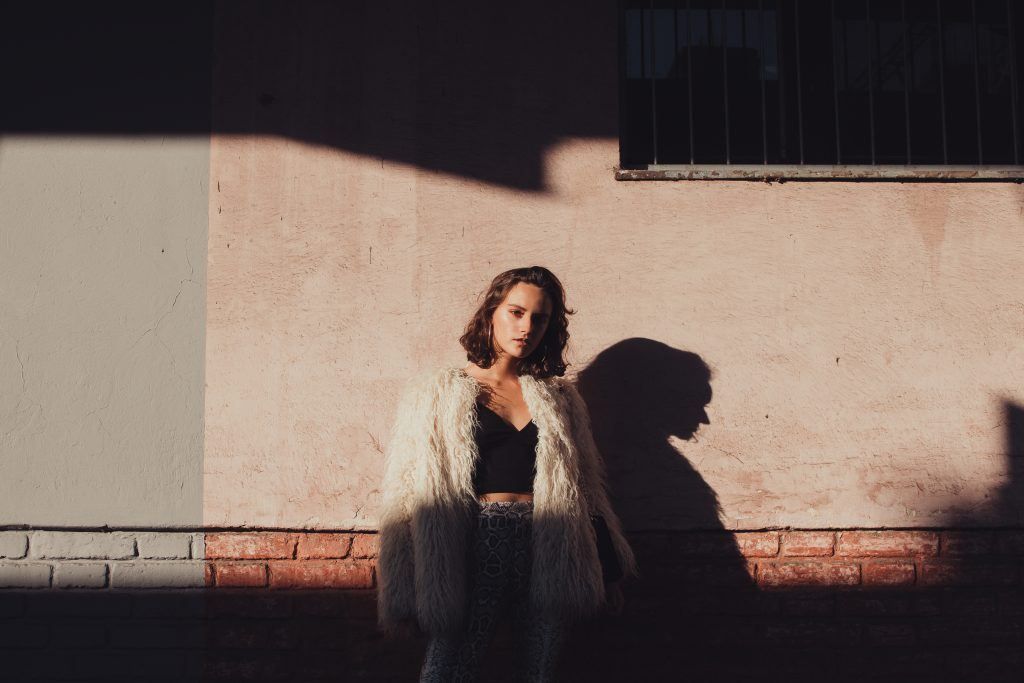
Photograph by Ludmila Borosova
Place your model next to a wall and play with the shadows created from their body! Depending on the direction and strength of the sunlight, you can get amazing effects as a result. If you want to take them to the next level, try them symmetrical. In the picture above, I wanted a very minimalistic vibe.
"While shooting, try out different positions and learn quickly how the sun affects your photos and the shadows in them."
Stand in the Right Place!
If you’re lucky enough, especially next to buildings, you can always find a spot surrounded by darkness, where the sun shines on just one spot. Make the model stand right there! You’ll get your own personal reflector and make her feel like the queen.
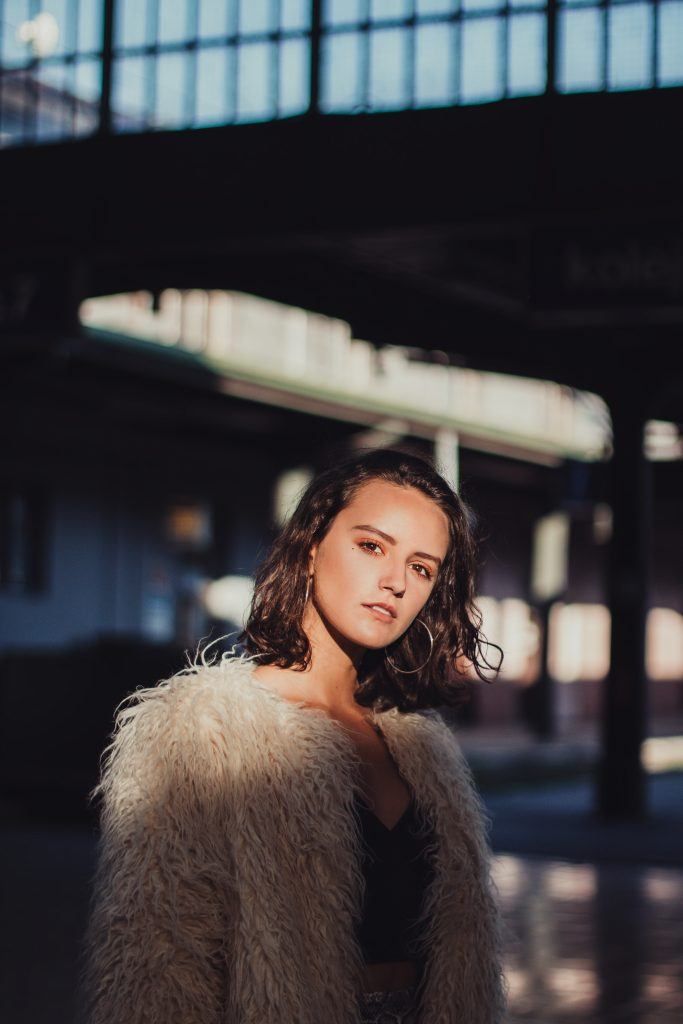
Photograph by Ludmila Borosova
Don’t Give Up, but Give Yourself a Break!
There is no shame seeking shelter when the sun is the strongest – hide inside for a few pictures until you are ready to continue again. Even though these pictures will give you a different dynamic, they will complement the photoshoot very well and make you feel safe at least for a few moments, using techniques you already know about.
Recommended Reading: If you’re interested in learning more about light and how you can use it to improve your photography, grab a copy of Photzy’s bestselling premium guide: Understanding Light Book Two.
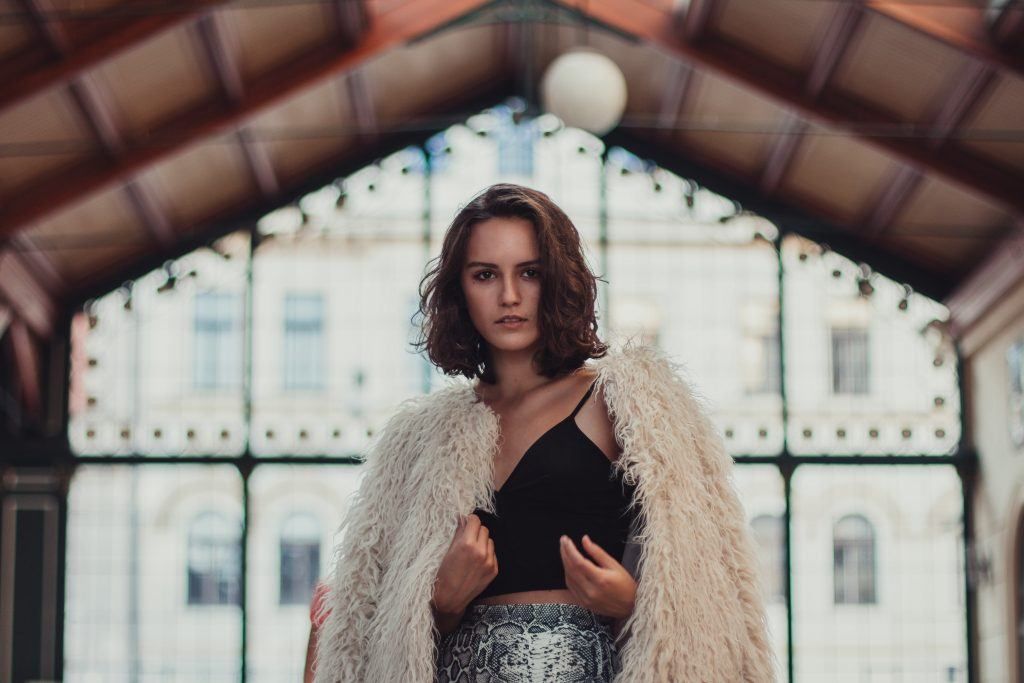
Photograph by Ludmila Borosova
After the Photoshoot
Play with the Edit!
As I mentioned before, I prefer taking my harsh light pictures underexposed, to make sure that there aren’t any blank white spots. While editing, I first figure out what kind of colors and contrast I want and use a brush to minimize the highlights in lighter areas. I take different approaches toward “good” and “bad” shadows, and use mainly “shadows bar,” “dodge and burn,” and “curves” to create my preferred look.
Seek Feedback!
Don’t be afraid of constructive feedback; thousands of people could look at the same photo and give you completely different advice. Be honest with your situation and explain to fellow photographers that it’s your first attempt and you’re seeking their opinion. You’ll be surprised at how much you can learn from just a few words!
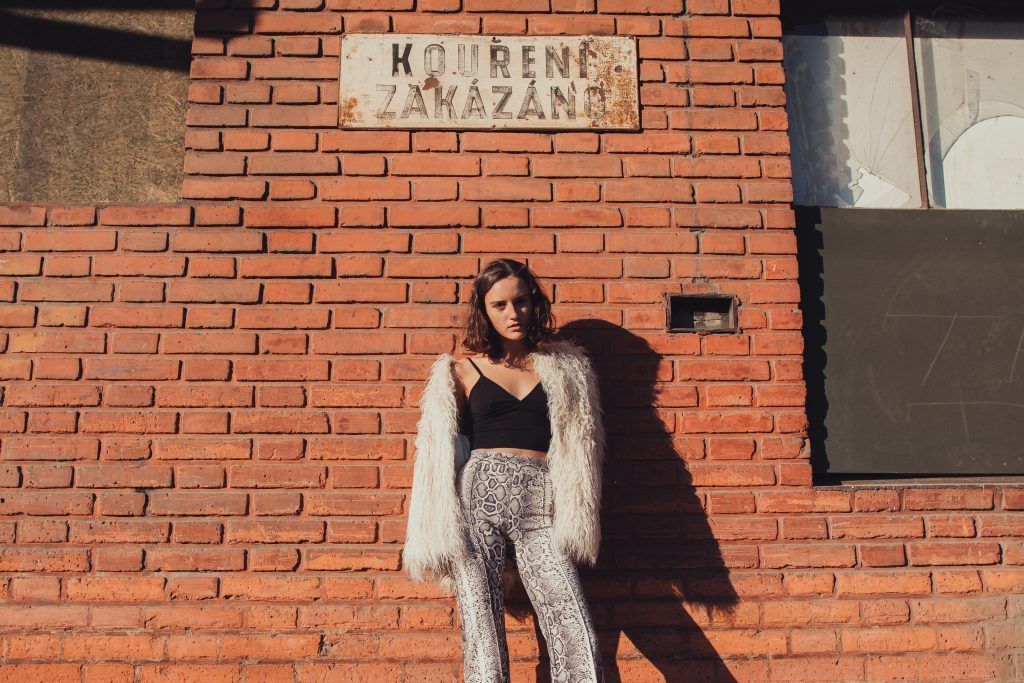
Photograph by Ludmila Borosova
Conclusion
Does directional lighting still sound harsh? Or do you feel at least a bit more comfortable trying it out now?
Overall, there isn’t a good or bad approach to this problem. As you’re going to find out, each photographer has their own style in similar conditions. That’s why the best advice is to go out and seek uncomfortable for yourself. There are probably many people at this moment doing the same thing, but your way of shooting is going to be unique.
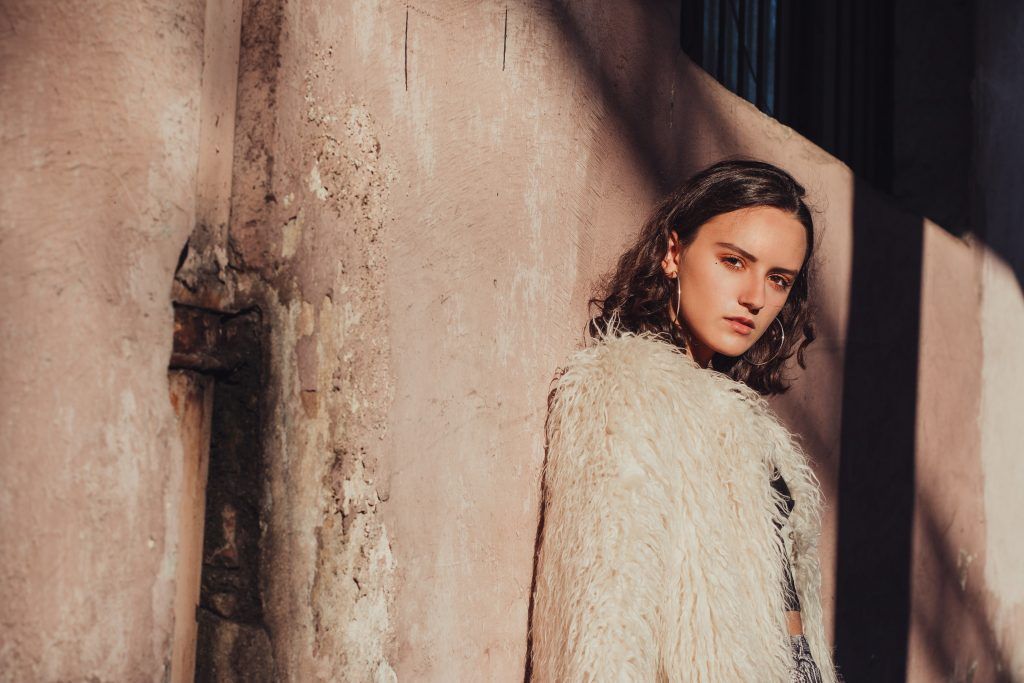
Photograph by Ludmila Borosova
Self-Check Quiz:
- Why do some photographers avoid shooting at noon?
- What kind of place is ideal for your first photoshoot in direct light?
- How would you set up your camera? In Automatic or Manual mode?
- Is it wrong to keep your model’s eyes closed for a while?
- How would you face your model considering the sunlight?
- What type of shadows are created when the sun is on the horizon?
- Should you take your pictures overexposed or underexposed?
- What would you look at while editing your harsh light pictures?
- Would you consider hiding from the sun during your photoshoot?
- Can a spaghetti strainer be useful outside the kitchen?
Assignment:
- Create your own personal folder with at least 10 saved pictures from a photoshoot you liked, all with the same harsh light conditions, and think about which concept you liked the most.
- Try creating self-portraits using just a flashlight from various angles and observe how it affects the shadows on your face.
- Don’t wait too much – you learn the best by doing, so plan your first photoshoot.
- Prepare three things you can find at home that can be used to create interesting shadow patterns.
- After the photoshoot, ask at least five people for feedback and compare how different it is.

